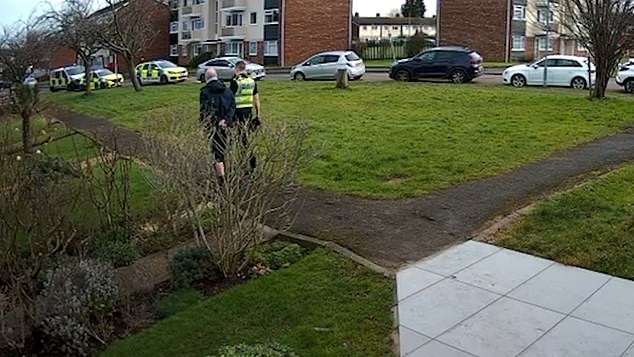A quiet suburb in Hertfordshire has become the epicenter of a national debate on free speech, parental rights, and over-policing after two parents were arrested for criticizing their daughter’s primary school in a WhatsApp group. Maxie Allen and Rosalind Levine, both professionals and loving parents, found themselves facing police custody after they raised concerns about Cowley Hill Primary School’s headteacher appointment process. What started as frustrated messages turned into an eight-hour ordeal in police cells, all in front of their nine-year-old child.
Now, the UK is asking: have we gone too far in policing parental dissent?
This shocking incident has sparked outrage, confusion, and worry across school communities. As tensions between parents and school administrators rise across the country, this case sheds light on deeper systemic issues. Here’s everything you need to know about what happened—and why it matters.
The Arrest That Shocked a Community
What happened in Borehamwood isn’t just about a WhatsApp chat—it’s about what happens when everyday concerns are treated like crimes.
What Happened in Borehamwood?
On January 29, 2024, Maxie Allen and Rosalind Levine were arrested at their home by six police officers. The couple were reportedly stunned when officers arrived, citing alleged harassment and malicious communication against staff at Cowley Hill Primary School. Their crime? Expressing frustration in a WhatsApp group with other parents and sending emails to the school over concerns about the headteacher recruitment process.
The couple’s daughter, just nine years old, watched as her parents were taken away. Both were held for approximately eight hours before being released. Following a five-week investigation, Hertfordshire Police took no further action. But for the couple, the damage had already been done—emotionally, socially, and mentally.
Complaints That Triggered a Police Response
So what did the parents actually say? According to sources close to the investigation, their criticisms included questioning the transparency of the new headteacher selection and implying a conflict of interest involving the chair of governors. These messages were shared in a private WhatsApp group used by school parents.
The school, however, deemed the comments inappropriate. Combined with formal emails sent by the couple, the school reported the matter to police, alleging that the messages amounted to harassment and malicious communications.
What’s raising eyebrows is that these were private conversations among parents—not public campaigns or direct threats.
Why Were the Parents Arrested?
The legal basis of the arrest sits in a controversial gray area, combining UK harassment laws with growing concerns over online communication.
The Legal Basis for the Charges
In the UK, the Malicious Communications Act 1988 and the Protection from Harassment Act 1997 make it a criminal offence to send communications intended to cause distress or anxiety. These laws, initially intended for stalking and severe abuse cases, have more recently been applied to digital conversations, including social media posts and group chats.
In this case, authorities claimed the WhatsApp discussions—coupled with emails to the school—could amount to targeted harassment. Critics argue this is a misuse of police resources and an overreach of the law, especially given the lack of physical threats or violent language.
The Eight-Hour Detainment
Both parents were taken to a local station, searched, fingerprinted, and held in separate cells for questioning. “We were treated like criminals,” Allen reportedly said. “All we did was raise concerns about our child’s education. Isn’t that what good parents are supposed to do?”
After hours of interrogation, they were released under investigation. Five weeks later, the police dropped the case. No charges. No apology. Just lingering fear and reputational damage.



